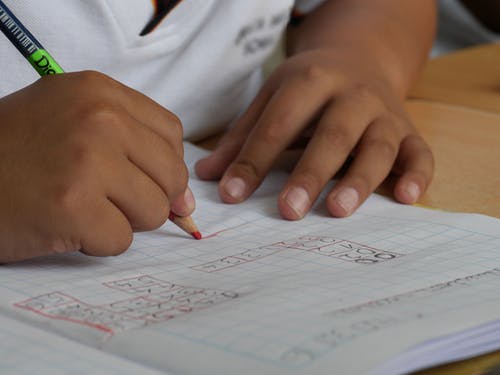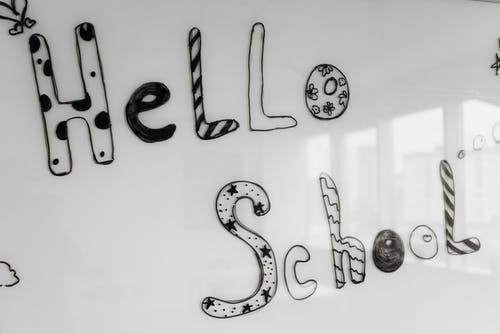Books about kids who homeschool are few and far between, but not for long. Lisa Cottrell-Bentley, an unschooling mother of two girls, earlier released the second in her series of books about the fictitious Wright Family.
Wright on Time Books
The Wright on Time series follows the adventures of the fictitious road-schooling Wright Family. Parents Stephanie and Harrison, along with their children Nadia and Aidan, have moved into the RV and are full-time students of life, visiting every state for a hands-on education.
Book One: Arizona
In the first book of the series, released in autumn of 2009, the Wrights rent a cave in Arizona for the day. How many readers even knew that was possible? Inspiration for the series comes from Lisa’s own RV travels with her children as well as interviews with other road-schooling families.
Book one takes place entirely in the cave where Aidan gets to see “freaky cool” bats up close, Nadia gets to mine for gemstones and readers get a glimpse of real-life science.
Book Two: Utah
In book one, the Wright’s mention that their next stop is Utah. A curious treasure from their Arizona cave exploration leaves readers wondering what their friends in Utah will tell them about its origins. The Utah book was released in November of 2009 and the series is becoming popular with road-schooler, unschoolers and homeschoolers. Readers can follow along with the family’s adventures through Nadia’s blog.
Other Books About Homeschooled Kids

Also fairly new is Rain Fordyce’s I am learning all the Time [Homeschool Adventure Books, 2008] which chronicles the thoughts and experiences of 5 year old Hugh as he begins official homeschooling and watches his friends go off to kindergarten.
Both authors were inspired by their own families, and the market for books homeschooled kids can relate to is a fresh one.
Real-Life Road Schoolers
Bentley has immersed herself in the world of road-schooling, taking her family on extended road trips and getting feedback from families all over the United States, quite literally. Families living on the road, modern day nomads, are catalogued on her website, where families answer 20 questions about life on the road.
Picturing a lifestyle without schooling is often difficult for families who haven’t experienced homeschooling. Even homeschool families may have difficulty imagining life on the road. The Wright on Time series successfully creates a vision of travel-based education while simultaneously inspiring a thirst for exploration that wannabe nomads will respond to wholeheartedly.
Homeschool Socializing Information
A common question about homeschooling pros and cons is about socialization. People wonder if kids raised outside of “regular” government-run or private schools have opportunities to be with other students. People also speculate about whether home-educated children are stuck at home, lonely, with only a parent and learning all alone. So what is home education social life really like?
Do Homeschoolers Play or Learn with Other Kids
Homeschooled students of all ages socialize in many ways with other homeschoolers, neighbors after school and on weekends, club members (in groups like scouting troops, Christian homeschooling clubs, secular homeschool groups, and 4-H), and with others of all ages in the community.

There are an estimated 2 million children n the U.S. and an estimated 50,000 to 95,000 students homeschooled in Canada (HSLDA). Homeschooling is found around the world in various forms. In short, there are many homeschoolers to socialize together.
Most of these kids, teens, and family members come together to form local learning groups, meet for field trips, spend the day together at local zoos or science centers, and take classes together. Many communities offer homeschoolers the choice of attending one or more courses through local schools or special programs, as well. There are endless opportunities for homeschoolers to socialize, including spending plenty of quality time with siblings and other family.
Do Homeschooling Teens Play Team Sports and Go to the Prom
Homeschooling families also organize P.E. classes or events in the community (at the YMCA, for instance). Beyond those sorts of things, many homeschoolers join in with community after-school sports, such as soccer and little league baseball teams. Homeschooled teens sometimes try out for and play local high school sports. Just as other children do, some homeschooled kids excel in a certain sport, such as bowling. They may join regular junior leagues, but may also (because of the efficiency of homeschool learning) have extra time to practice their talent. One Washington teen plays in two junior leagues and often has time to travel to in and out-of-state tournaments.
Some homeschoolers excel in other areas. Many national spelling bee winners have been homeschoolers. These students meet other people from across the nation during competitions, which is a wonderful experience in socialization.
As far as school dances and Junior and Senior proms go, homeschoolers attend those as well. Some teens are invited to local high school events by public school friends. Others attend special events planned for (and sometimes by) homeschool teenagers and their friends. Portland, Oregon, for instance, has a large homeschool teen group that hosts parties, several holiday dances, and a fancy prom each year. A teen group in Washington State hosts all sorts of get-togethers every other Saturday night.
If a young homeschooler feels lonely, he or she has the opportunity to plan an event or join in with others. Most homeschoolers are happy to include new folks in their activities and are accepting of people from all walks of life. A good place to start is by searching homeschooling online. One may find a local homeschool group to join.
Homeschoolers Found to be Better Socialized and More Mature
According to a Radford University of Virginia master’s thesis by Thomas Smedley entitled The Socialization of Homeschool Children , “home-schooled children were better socialized and more mature than the children in the public school.”





